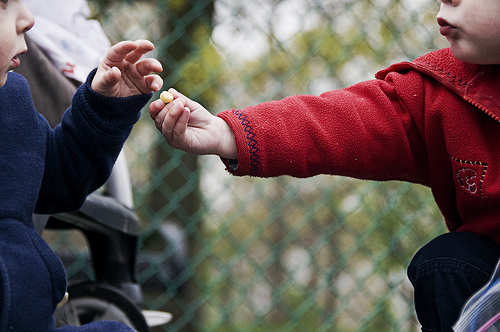“Name something you don’t like to share.”
Plinky
Shouldn’t the selfless answer be something along the lines of “Absolutely nothing?” As a parent who is always working to teach my daughter (and soon, son) to share, I wonder if this isn’t the perfect way to set an example. “Look, my child: there’s absolutely nothing I would not share with you. I have my ice cream, but I’m only happy if it’s our ice cream. In fact, it gives me more joy to give it all to you than simply to share it.” Indeed, in such “sharing,” I would certainly be getting the better end of the deal: ice cream melts, no matter what; joy lingers.

Yet isn’t that also the reckless answer? As with most questions, the more one thinks about this, the broader the potential. Do I want to share my sorrows with my children? Do I want to share my pain?
And deeper still: if I don’t want to share my sorrows with my children, why not? It would only be shielding them artificially from what they themselves would experience, and if I share my sorrow, I can control the dose. If I don’t want to share my pain, then how can I expect them to share theirs with me, which is much more important?